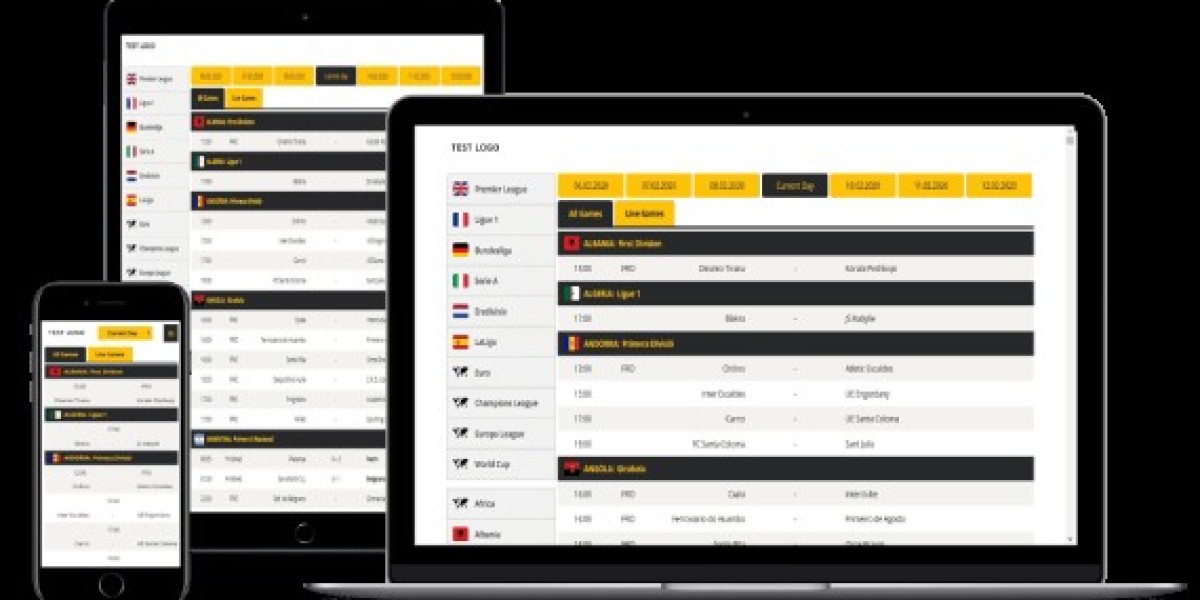Every fan of sports today needs updates, analysis, and statistics of the game right from their fingertips due to advancement in technology. In order to be able to satisfy this demand, websites, applications, and platforms use Sports Statistics APIs as sources of real-time data.
What Is a Sports Statistics API?
Sports Statistics API is a tool that enables developers to integrate sports data into websites, mobile apps, and other platforms. APIs connect one side, known as the data provider (sports leagues or databases in this case), and the other side: the end user application, which provides a convenient way of data interchange.
Sports APIs can provide data such as:
- Live scores
- Player statistics
- Team standings
- Match schedules
- Historical data and analytics
- Betting odds
- Fantasy league stats
This integration allows developers to focus on building engaging platforms without manually managing large volumes of sports data.
How Sports Statistics APIs Work: Key Components
The functionality of a Sports Statistics API can be broken down into several key steps:
- Data Collection
The foundation of any Sports Statistics API is the collection of raw data. This data is sourced from:
- Official sports organizations and leagues (e.g., FIFA, NBA, NFL)
- Broadcasters and media outlets
- Licensed sports data providers
- User-generated content in some cases
Sophisticated systems, including AI-powered tools and human validation teams, ensure the data is accurate and up-to-date.
- Data Processing
Once raw data is collected, it is processed into a structured format. This involves:
- Standardizing data across leagues and events for consistency
- Filtering irrelevant information to ensure quality
- Categorizing data into specific endpoints (e.g., live scores, player stats, match schedules)
- Data Storage
The processed data is stored in secure databases, optimized for fast retrieval. This storage must accommodate the vast amount of data generated daily across sports worldwide. Cloud-based storage solutions are commonly used to ensure scalability and performance.
Core Features of a Sports Statistics API
A high-quality Football Widgets typically offers the following features:
- Real-Time Data
Providing live updates for ongoing games, player performance, and match results.
- Historical Data
Access to archived data, such as past match results, player achievements, and team performance over the years.
- Customizable Endpoints
APIs offer various endpoints so developers can choose specific data sets.
- Global Coverage
Many APIs provide data for multiple sports, leagues, and tournaments across the world.
- Advanced Analytics
Detailed statistics such as xG (expected goals), heat maps, and possession percentages.
- Multi-Language Support
APIs often include multi-language support for global accessibility.
- Developer Documentation
Comprehensive guides and documentation help developers quickly implement the API into their platforms.
Use Cases of Sports Statistics APIs
Sports APIs are versatile and power numerous applications, including:
- Live Score Websites
Platforms like ESPN or Livescore use APIs to display live match updates and scores from leagues worldwide.
- Fantasy Sports Apps
Fantasy leagues like DraftKings rely on APIs for player performance stats and fantasy scoring.
- Betting Platforms
Betting apps use APIs to provide real-time odds, betting tips, and match updates.
- Sports News Portals
News platforms integrate APIs for delivering schedules, results, and player interviews.
- Mobile Apps
Apps like SofaScore or OneFootball use APIs to create mobile-friendly interfaces for users to track their favorite teams and players.
How to Integrate a Sports Statistics API into a Website
Integrating a Sports Statistics API into your website involves several steps:
Step 1: Choose the Right API
Research available APIs and choose one that suits your platform's needs. Consider factors like:
- Coverage (sports, leagues, regions)
- Pricing plans (free, freemium, or premium)
- Features (real-time updates, historical data, analytics)
- Developer support and documentation
Popular sports APIs include API-Football, SportsRadar, and Football-Data.org.
Step 2: Obtain an API Key
Free NBA API require you to sign up and obtain an API key to access their services. This key is used to authenticate requests.
Step 3: Set Up Your Website
Prepare your website’s backend to handle API requests and responses. You’ll need programming knowledge in languages like PHP, Python, or JavaScript.
Step 4: Make API Calls
Use the API key to make requests to specific endpoints.
Step 5: Display Data
Format the API’s response and display it on your website. For instance, you can use widgets or custom HTML and CSS to showcase live scores or stats.
Challenges of Using Sports Statistics APIs
While Sports Statistics APIs are powerful, they come with challenges:
- Data Accuracy
Ensuring the data provided is accurate and timely is critical for user satisfaction.
- API Limitations
Free-tier APIs may impose rate limits on the number of requests, impacting functionality during peak times.
- Integration Complexity
Developers may face challenges integrating APIs with existing systems, especially if documentation is poor.
- Cost
Premium APIs can be expensive, especially for platforms requiring extensive data coverage.
- Data Privacy
Handling sensitive user or team data responsibly is a must to ensure compliance with data protection regulations.
Benefits of Sports Statistics APIs
Despite challenges, these APIs offer several advantages:
- Automation: Eliminates the need for manual updates.
- Scalability: Supports expanding data needs as your platform grows.
- Customization: Allows tailored solutions for specific user groups.
- Engagement: Enhances user experience with dynamic, interactive content.
By understanding how these APIs work and leveraging their capabilities, you can build a dynamic and successful sports platform that keeps fans coming back for more. Whether you're developing a live score app, fantasy league, or sports news site, Sports Statistics APIs are an essential tool in your arsenal.



